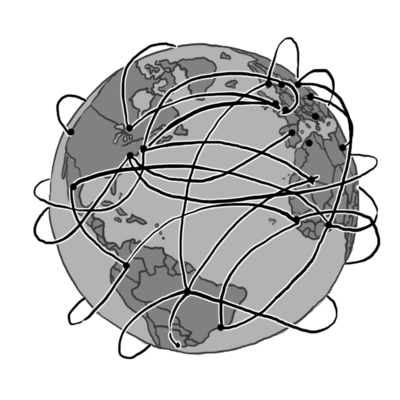Global opinion of the U.S. has broadly declined during President Trump’s term. But what has that meant for Americans living abroad, who serve as both observers of and ambassadors for what is happening in their country?
Monitor Daily Podcast
- Follow us:
- Apple Podcasts
- Spotify
- RSS Feed
- Download
 Yvonne Zipp
Yvonne Zipp
Well, good grief.
The latest holiday tradition lost to 2020 is the Great Pumpkin.
In the words of Linus: “Augh! You didn’t tell me you were going to kill it!”
That annual ode to sincerity, autumn leaves, Sopwith Camels, and costumes you make yourself has aired on TV every year since 1966. But this Halloween there will be no Linus waiting faithfully in the pumpkin patch, no Lucy yanking the football away from Charlie Brown, no World War I flying ace hiding out behind enemy lines.
It has been traded away from ABC to AppleTV+, which will stream it free between Oct. 30 and Nov. 1. “A Charlie Brown Christmas” – that animated cri de coeur against commercialism – also will not be on broadcast TV, nor will “A Charlie Brown Thanksgiving,” which posits that sharing what you have with friends makes a feast – even if it’s toast, popcorn, and jelly beans.
Instead of a cape and superpowers, Linus totes a blanket and issues wisdom such as: “Never jump into a pile of leaves with a wet sucker,” and “Three things I have learned never to discuss with people: religion, politics, and the Great Pumpkin.”
As Gen Xers, my husband and I grew up with “It’s the Great Pumpkin, Charlie Brown” and raised our son on the Peanuts. For Halloween, he was the World War I flying ace, complete with giant red doghouse and an aviator helmet. We made the costume ourselves, despite me being about as handy with scissors as Charlie Brown.
Shared cultural touchstones are becoming ever harder to find. Charles Schulz, Bill Meléndez, and Lee Mendelson had a genius for celebrating what unites, and setting it to jazz. As Linus says of his pumpkin patch, it can be said of their holiday specials: “You can look all around and there’s not a sign of hypocrisy. Nothing but sincerity as far as the eye can see.”










